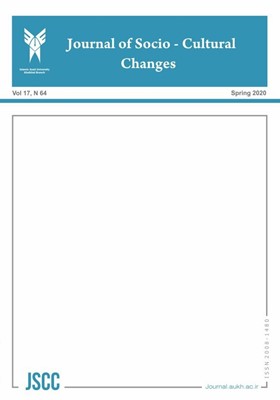Comparison of the position of women before the Islamic Revolution and after the Islamic Revolution of Iran..
Subject Areas : Familyleila hajigahramani 1 , Bahman Keshavarz 2 * , Hasan Eivazzadeh 3 , Mehdi Khoshkhati 4
1 - PhD Student in Public Policy, Zanjan Branch, Islamic Azad University, Zanjan, Iran
2 - Assistant Professor, Department of Political Science, Zanjan Branch, Islamic Azad University, Zanjan, Iran
3 - Assistant Professor, Department of International Relations, Zanjan Branch, Islamic Azad University, Zanjan, Iran
4 - Assistant Professor, Department of International Relations, Zanjan Branch, Islamic Azad University, Zanjan, Iran
Keywords: Islamic Revolution, Government Policy, Women's Status,
Abstract :
Given the fact that women, as an important part of the community, have been tasked with a significant role and have been actively involved with men in various scenes, But during the past periods in our country, attention has been paid to the status and rights of women in the vicissitudes. Accordingly, this study aimed to describe and explain the status of women before and after the Islamic Revolution. The present study is in term of the purpose is applied research and in terms of nature and method is a descriptive-analytical research. The present study in term of the purpose is applied research and in terms of nature and method is a descriptive-analytical research. Data collection was also carried out in the form of a library-documentary. In this study, the position of women was reviewed in the different sections before and after the Islamic revolution. The results of the investigation suggest that women before Islamic revolution had limited situations. After the victory of the Islamic revolution, the situation of women was changed again. And at this juncture that societyfaced with several problems, had been prevented from paying attention to women's issues and revive their lost rights. However, after a relative improvement in the situation of the community, the issue of women's rights and the real status of this stratum were considered by policy makers.
_||_

